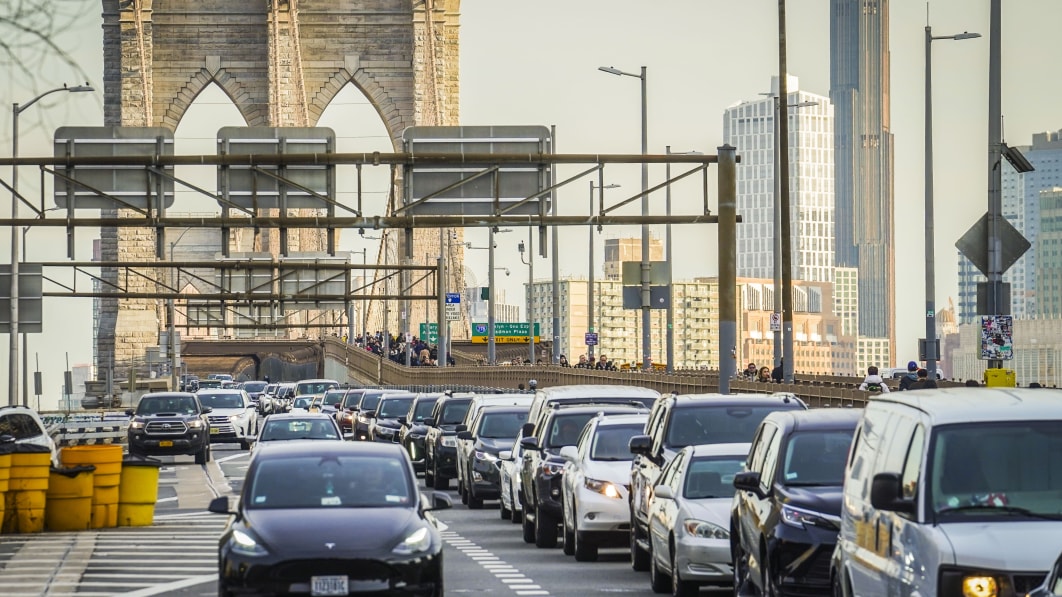
New York Governor Kathy Hochul halted a plan to charge motorists driving into Manhattan, upending an initiative years in the making that was finally set to kick in at the end of this month.
The governor cited inflation and financial pressures on working-class New Yorkers as reasons to not implement congestion pricing, but the initiative was shaping up to be a political albatross ahead of this year’s congressional elections.
“The decision is about doing what’s right for the people who make our city thrive,” she said Wednesday in a pre-taped statement posted to the state’s website. “My focus must be on putting more money back into people’s pockets.”
Hochul will look to replace the tolling plan with a tax on New York City businesses, according to a person familiar with the situation who requested anonymity because the proposal hasn’t been made public.
The new pricing system was set to begin June 30 and would have been the first of its kind in the US. It was expected to bring in $1 billion a year to help modernize a more than 100-year old transit system that’s been ravaged by episodes of heavy rain and severe flooding. The money was meant to f inance subway signal upgrades to reduce train delays, new electric buses and extending the Second Avenue subway to Harlem.
“This is a shocker,” said Andrew Albert, an MTA board member who voted in favor of congestion pricing. “It’s just unreal. The longer you wait, the more expensive things get.”
The shift away from the tolling initiative is a stunning reversal for Hochul, who just two weeks ago touted the plan as a way to reduce the city’s idle traffic. Virtually all of the tolling gantries are already installed on Manhattan streets and ready to charge drivers.
“It took a long time because people feared backlash from drivers set in their ways,” Hochul said at the time. “But, much like with housing, if we’re serious about making cities more livable, we must get over that.”
Unpopular policy
Hochul w as facing the implementation of an unpopular policy that could have hurt Democrats in key congressional races in November. A Siena poll from April found 63% of New Yorkers disapproved of the plan, including majorities of Democrats, Republicans and independent voters. And although Hochul isn’t up for reelection until 2026, her own approval ratings have been suffering, with a May Siena poll finding her with a 38%-46% favorability rating among New Yorkers.
In a statement, freshman Republican Congressman Mike Lawler, who represents a Hudson Valley swing district, blasted Hochul’s decision as “nothing more than an election-year stunt.”
“Almost five months to the day before Election Day, Governor Hochul has suddenly realized how bad congestion pricing is polling in the suburbs and in New York City,” Lawler said.
“I’m proud to say we’ve stopped congestion pricing in its tracks,” said New York Congressman Pat Ryan, a Democrat who represents parts of New York City’s suburbs. “Now it’s time to get to work on a plan that actually makes sense for the entire state, not just New York City.”
Hochul’s decision to postpone it was reported earlier by Politico and the New York Times. Part of the consideration to delay stems from concern that the implementation would hurt Democrats in competitive House of Representatives races this year, according to Politico. Hochul was responding to worries raised by House Minority Leader Representative and New York Democrat Hakeem Jeffries, citing a person familiar with the matter, Politico also said.